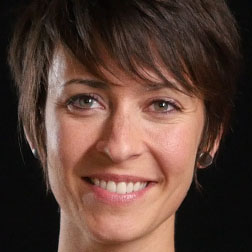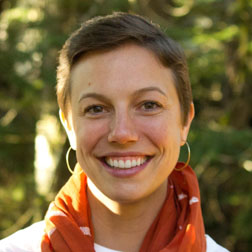For me, as a consultant on diversity and inclusion (D&I), “Diversity Work” is a radical call to embrace difference. It is a means of challenging our conditioned patterns, biased views, and unjust practices.
Fundamentally, it is about liberating ourselves from old patterns in order to care more deeply for each other, and creating fairness in our relationships that allow us to discover new and dynamic collaborations.
When I communicate with the companies I work with I assert that legislation and policies are necessary (whether that be new hiring processes or putting cameras on police). But, I am also clear with them that that is not sufficient, because legislation and policies only regulate bigotry, unjust practices, and institutional oppression — they do not end it.
For long term, positive culture change we must include inner transformation to end bigotry and institutional oppression. And there is a crucial orientation we must take, I believe, to successfully support the organizations and people we work with in transforming.
We, as consultants and facilitators, must orient our clients and teams to the interpersonal dynamics in the here and now.
Before giving you a sense of what I mean, I need to acknowledge this is riskier compared to conventional approaches. That is to say, it is much safer to share research on unconscious bias and point out potential pitfalls for future interactions, watch a movie and talk about it, etc., because that is talking about “it” — the corrosive interpersonal dynamics — without looking at the dynamics between us in the here and now where the real tensions lie.
Given this risk it is important to support participants to engage in the here and now by setting ground rules and intentions for development and learning. (For more information on this, check out this and this blog to kick-start your inquiry).
Here’s a simple example of how I orient groups to the here and now in order to work with difficult and inherently injurious interpersonal dynamics.
Recently I was facilitating a conversation between men and women working in the tech-space. I had the men and women sit across from each other and follow these simple guidelines: You can ask a question of the other side’s experience OR tell the other side something you want them to know about your experience.
One of the men asked the women about their lived experience in their places of work. A woman responded that her experience was that women in the office speak up to share ideas, observations, and questions, but are too often ignored by men to the point of feeling invisible.
After she finished speaking, I invited any of the men to reflect what they heard her say. A man took me up on my request, but he did not reflect what he heard. Instead, he went straight to asking her questions, probing the experiences she was referring to. Although I could feel his sincere concern and curiosity about the women’s experience, and that it could even lead to some clarity, something was off. I asked him to pause.
What was off was that the dynamic of a woman speaking and then not being given the experience that she was heard and seen — the experience just described by this woman — was happening in that very moment. The man was not reflecting what he heard her say and, instead, going straight to questioning her about said experiences (which can subtly feel like moving down a path to discredit the experience).
Instead of continuing with his questions, I asked the man to simply reflect back what he heard her say, because it provided an in-the-moment opportunity to re-pattern this dynamic that we see culturally/institutionally all the time.
He adapted quickly and reflected back what she had said beautifully; she responded by accentuating a few points that felt important to her; and he repeated back the emphasized points. It was a simple back and forth on the surface of it, but deeply impactful for all involved (those engaged in the dynamic and those observing it).
In a moment like this, where we have a chance to work with dynamics as they show up in the moment, not only does our cognition open up to new experiences, but our hearts and bodies do too.
In other words, this is a very different experience than learning about unconscious bias research and looking for signs of bias in the future (i.e., not now); it is a full-bodied experience. These types of experiences, in my assessment, prove strong enough to carve new awarenesses and behaviors into us. It is this type of full-bodied experience that liberates us into new ways of relating and affirm our equality and the value we bring to each other. These experiences bind us to each other through greater sense of intimacy born through deeper understanding of one another. A very embodied sense of allyship forms.
The goal of this approach is not merely to feel good together, or to absolve our guilt and move on. It is about creating deeper understanding and a commitment to liberation and fairness through our relationships in service to historically marginalized and oppressed peoples. For if they are not liberated, none of us are truly liberated.
My parting invitation to you is this: the next time you find yourself talking about “it,” bring your attention to the dynamics in the here and now, and support the groups you work with to feel and explore new ways of seeing and relating.
It is in the here and now that Liberation and Fairness can find us.
Gabriel Wilson is an associate for Ten Directions, a certified graduate of the Integral Facilitator Certificate Program, and a member of the Integral Facilitator training staff. He is a Lecturer at Stanford University and the Chair of the Integral Diversity Initiative.



4 thoughts on “Liberation and Fairness are in the Here and Now”
Gabriel, you are so spot on. It is always in the here and now that we experience what we must experience in order to learn new ways of being, communicating, and relating. I also like the way you facilitated a redirection of the dynamic. Thank you.
Thank you for your reflections, Dr. Warfield.
I like that I am being invited to embody how the social dimension of my identity is co-created. I believe I have a responsibility to acclimate to the tension involved in creating greater equity. No one will do this for us. Any tools that aid in turning abstract empathy into real practical caring is greatly appreciated.
The word “co-created” feels really important to me… it points to the fact that the dynamics between us are larger than either one of us. And in that sense, man or woman, black or white, all have our role to play in liberation and fairness. Thank you for your comment.